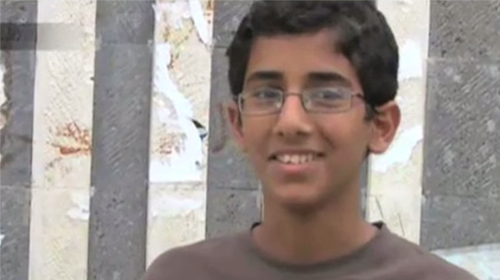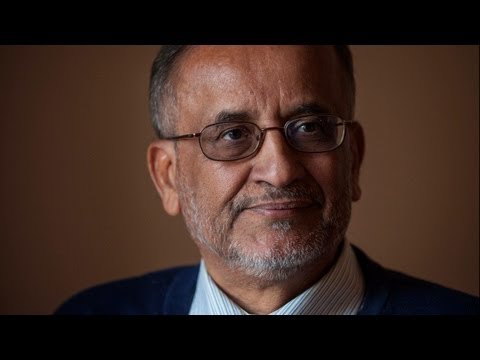
Having lost faith in the ability of U.S. courts to provide justice and accountability for their relatives' deaths, the family members of three U.S. citizens killed by drone strikes in Yemen in 2011 have decided not to appeal a court decision dismissing their lawsuit challenging the killings.
The ACLU and the Center for Constitutional Rights, representing the parents and grandparents of Anwar Al-Aulaqi, Samir Khan, and 16-year-old Abdulrahman Al-Aulaqi, filed the lawsuit in 2012, charging that the killings violated the Constitution's fundamental guarantee against the deprivation of life without due process.
Earlier this year, the court dismissed the suit on national security grounds in a decision that I described at the time as "treating the government's allegations as proof while refusing to allow those allegations to be tested in court." I also explained that the "court's view that it cannot provide a remedy for extrajudicial killings when the government claims to be at war, even far from any battlefield, is profoundly at odds with the Constitution."
Now, our client Dr. Nasser al-Aulaqi, the father of Anwar Al-Aulaqi and grandfather of Abdulrahman Al-Aulaqi, explains his decision not to appeal:
I believe that my son and 16-year-old grandson were unlawfully killed by their government, and for a long time, I had faith that an American court would decide whether the killings of at least these American citizens violated the U.S. Constitution's guarantee of due process.
My faith was shattered by the district court's opinion, which went out of its way to defer to the government's claims of killing authority, without allowing those claims to be challenged. I have now spent years asking American courts to decide whether the U.S. government can deprive even its own citizens of life as part of a killing program that has devastated families like ours, and the courts have repeatedly accepted the government's broad claims of national security and told me they will not decide.
This isn't justice.
I have no faith left in a judiciary that refuses even to hear whether Abdulrahman, an American child, was wrongfully killed by his own government. Although the court failed to fulfill its role in this case, my family and I continue to hope that answers to our questions about why our son and grandson were killed will someday see the light of day, and that there may someday be accountability for the government's actions.
When we filed the case, Dr. al-Aulaqi described in the video below his hope that the court would provide accountability for the government's actions — especially for the death of Abdulrahman, a boy born in Denver, Colorado, whom no one has accused of wrongdoing and who was killed by a U.S. drone while eating dinner outdoors.


%3Ciframe%20allowfullscreen%3D%22%22%20frameborder%3D%220%22%20height%3D%22281%22%20src%3D%22%2F%2Fwww.youtube.com%2Fembed%2FGQlbnulmnEw%3Fautoplay%3D1%26autoplay%3D1%26version%3D3%22%20width%3D%22500%22%3E%3C%2Fiframe%3E
Privacy statement. This embed will serve content from youtube.com.
Getting answers in court for the state's killing of citizens should not be too much to ask in a democracy, but our system of checks and balances failed these families. We share their deep disappointment that in deferring to the government on national security grounds and refusing to hear their claims, the court's decision fell short of its constitutional duty.
Learn more about targeted killings and other civil liberty issues: Sign up for breaking news alerts, follow us on Twitter, and like us on Facebook.



